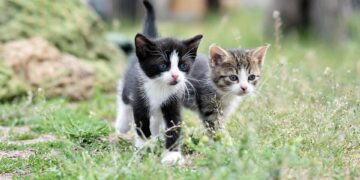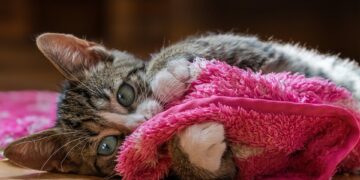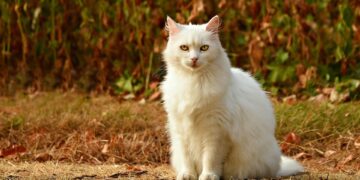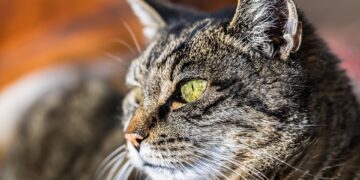Savoring Every Bite: The Best Soft Foods for Senior Cats with No Teeth
As cats age, their dental health can deteriorate, leading to the loss of teeth. This can make it challenging for senior cats to eat hard or crunchy foods. However, with the right diet, senior cats with no teeth can still enjoy delicious and nutritious meals. In this article, we will explore the best soft foods that are easy for senior cats to eat and digest.
Why Soft Foods are Best for Senior Cats with No Teeth
Senior cats with no teeth require soft foods for several reasons. Firstly, soft foods are easier for them to chew and swallow, allowing them to still enjoy their meals without struggling. Additionally, soft foods are gentler on their digestive system, reducing the risk of digestive issues such as vomiting or diarrhea. Finally, soft foods are often more palatable for senior cats, encouraging them to eat and maintain a healthy weight.
Choosing the Right Soft Foods for Senior Cats
When selecting soft foods for senior cats with no teeth, it is important to consider their nutritional needs. Look for foods that are specifically formulated for senior cats, as these will have the right balance of nutrients to support their aging bodies. Additionally, opt for foods that are high in protein to help maintain muscle mass and low in carbohydrates to prevent weight gain.
Best Soft Foods for Senior Cats with No Teeth
1. Wet Cat Food
Wet cat food is an excellent option for senior cats with no teeth, as it is soft and easy to eat. Look for high-quality wet cat food that is made with real meat and free from artificial additives. Wet cat food is also a great source of hydration, which is important for senior cats who may not drink enough water on their own.
2. Pate
Pate-style wet cat food is another great choice for senior cats with no teeth. Pate is smooth and easy to eat, making it ideal for cats who have trouble chewing. Pate is also highly palatable, making it a favorite among many senior cats. Look for pate that is made with high-quality ingredients and free from fillers or by-products.
3. Gravy-based Cat Food
Gravy-based cat food is another option for senior cats with no teeth. The gravy helps to soften the food, making it easier for cats to eat. Gravy-based cat food is also a good source of moisture, helping to prevent dehydration in senior cats. Look for gravy-based cat food that is made with real meat and free from artificial preservatives.
Common Questions About Soft Foods for Senior Cats
1. How can I encourage my senior cat to eat soft foods?
If your senior cat is hesitant to eat soft foods, try warming the food slightly before serving it. This can help to enhance the aroma of the food and make it more enticing to your cat. You can also try mixing in a small amount of wet food with their dry food to help them transition to a soft diet.
2. Are there any soft foods that can help improve my cat’s dental health?
While soft foods are easier for senior cats with no teeth to eat, they may not provide the same dental benefits as crunchy foods. However, there are dental treats available that are soft and can help to promote oral health in senior cats. Look for dental treats that are specifically formulated for senior cats with no teeth.
3. How often should I feed my senior cat soft foods?
It is recommended to feed senior cats with no teeth soft foods at least twice a day. This will help to ensure that they are getting the nutrition they need to stay healthy. You can also leave out small amounts of soft food throughout the day for your cat to snack on as needed.
Conclusion
Senior cats with no teeth can still enjoy delicious and nutritious meals with the right soft foods. By choosing high-quality wet cat food, pate, or gravy-based cat food, you can provide your senior cat with a diet that is easy to eat and digest. Remember to consider your cat’s nutritional needs and consult with your veterinarian if you have any concerns about their diet. With the right soft foods, your senior cat can continue to savor every bite and live a happy and healthy life.
Remember to consult with your veterinarian before making any changes to your cat’s diet, especially if they have specific health concerns or dietary restrictions. By providing your senior cat with the best soft foods for their needs, you can ensure that they continue to enjoy their meals and maintain their overall health and well-being.











































